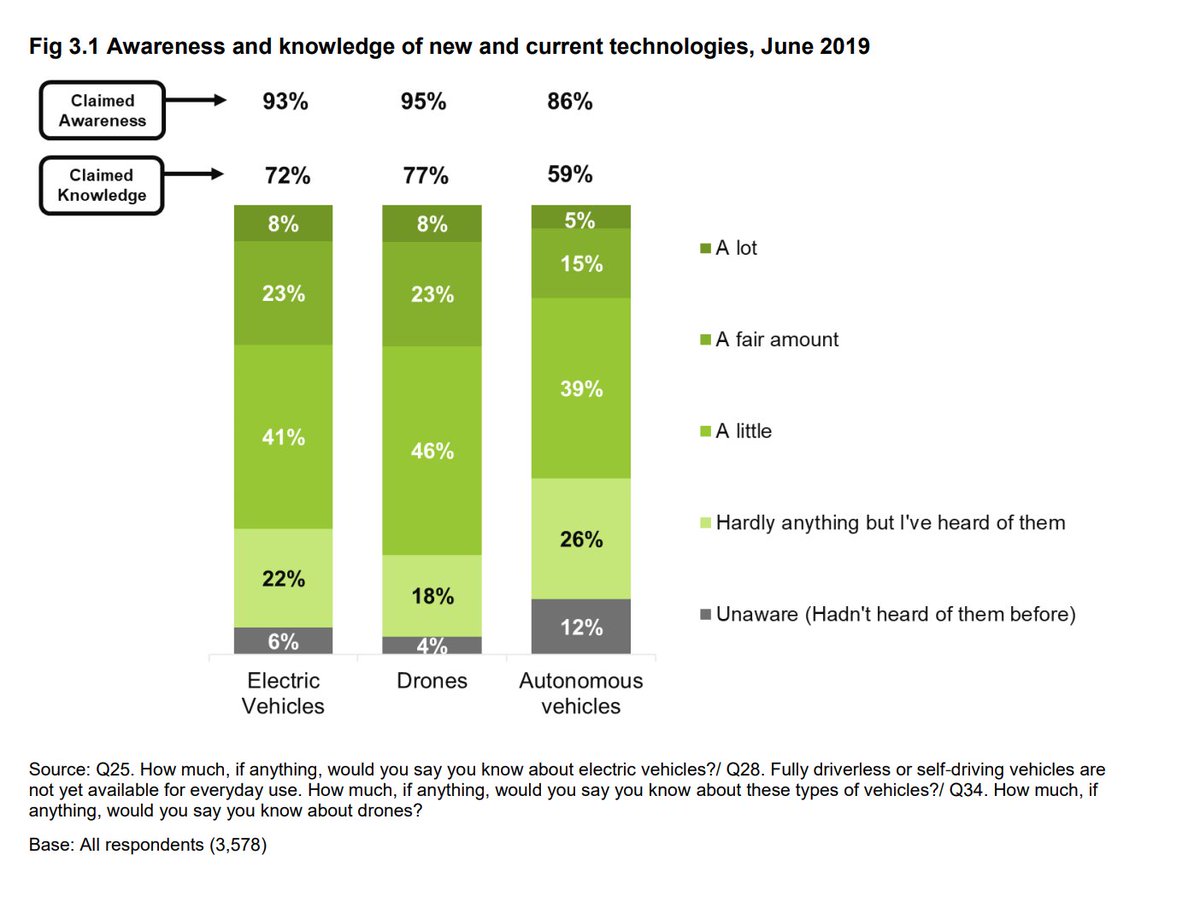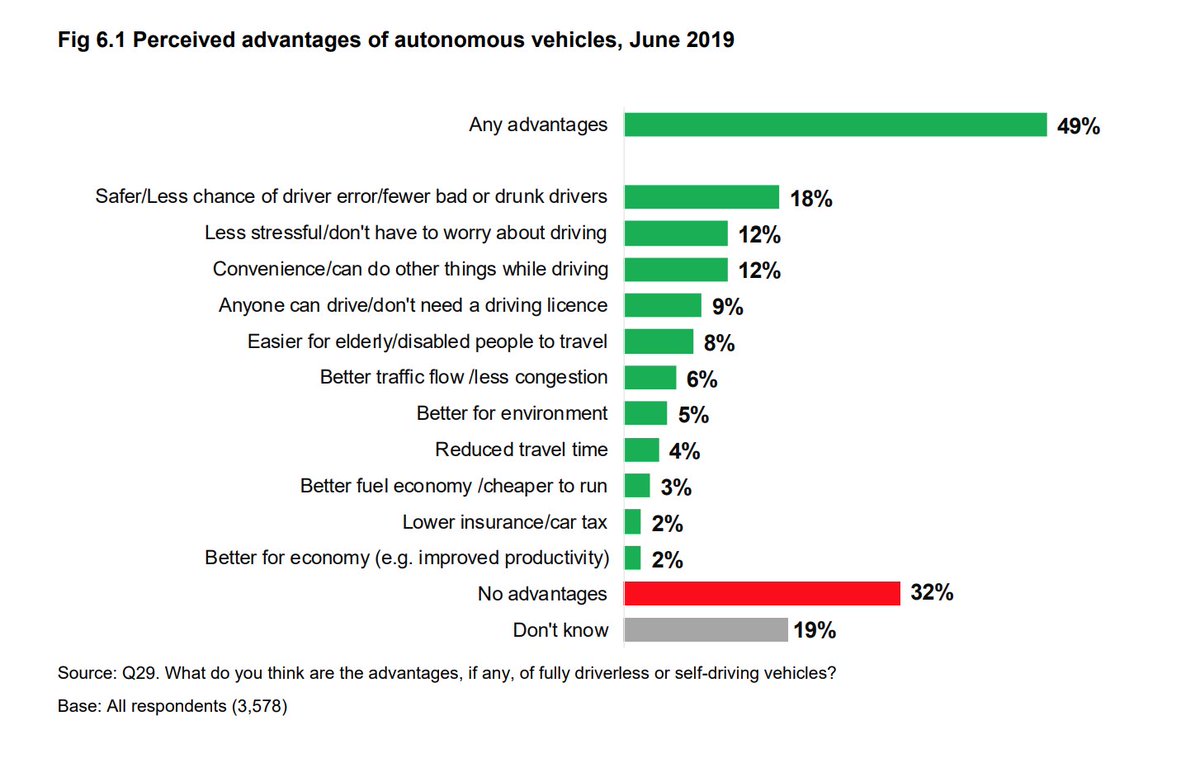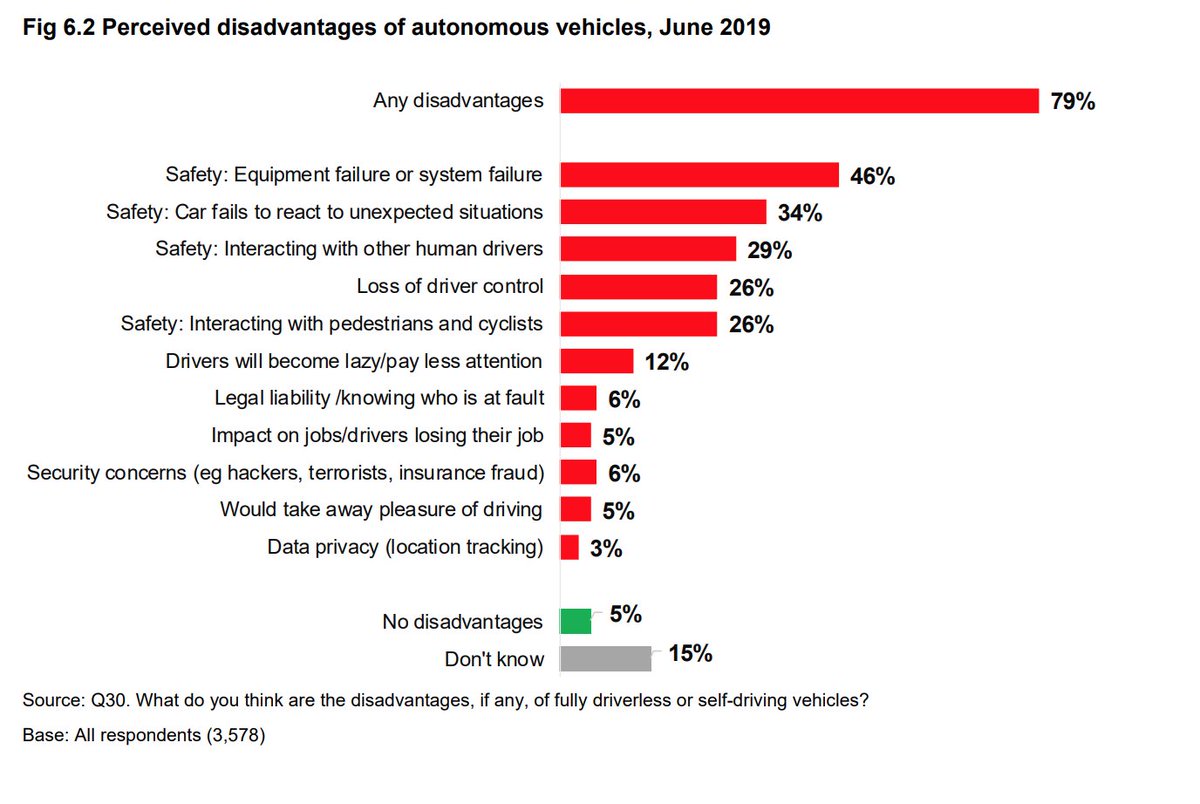Some new data on public attitudes to self-driving cars here from @transportgovuk. Let& #39;s dig into what it does and doesn& #39;t tell us  https://abs.twimg.com/emoji/v2/... draggable="false" alt="👇" title="Rückhand Zeigefinger nach unten" aria-label="Emoji: Rückhand Zeigefinger nach unten"> https://assets.publishing.service.gov.uk/government/uploads/system/uploads/attachment_data/file/847653/Summary_Report_of_Wave_4_of_the_Public_Attitudes_Tracker.pdf">https://assets.publishing.service.gov.uk/governmen...
https://abs.twimg.com/emoji/v2/... draggable="false" alt="👇" title="Rückhand Zeigefinger nach unten" aria-label="Emoji: Rückhand Zeigefinger nach unten"> https://assets.publishing.service.gov.uk/government/uploads/system/uploads/attachment_data/file/847653/Summary_Report_of_Wave_4_of_the_Public_Attitudes_Tracker.pdf">https://assets.publishing.service.gov.uk/governmen...
The survey data here is (are!) quantitative and necessarily superficial. @Kantar and @transportgovuk asked for top-of-the-head thoughts. In 2018, we did a giant public dialogue exercise on self-driving cars, which aimed for depth rather than breadth https://assets.publishing.service.gov.uk/government/uploads/system/uploads/attachment_data/file/837958/cav-public-acceptability-dialogue-engagement-report.pdf">https://assets.publishing.service.gov.uk/governmen...
Are people aware of and knowledgeable about self-driving cars/autonomous vehicles (AVs)? Yes, but much of this is flavoured by tech hype and high-profile crashes. Unclear what it means to know about a technology that doesn& #39;t yet exist.
People see plenty of advantages. Safety is biggest perceived benefit. Most advantages fit into a frame of conventional driving: how does tech help me and others drive?
Trouble is that safety is also the biggest perceived risk. In our public dialogue, we explored the difficult conversations tech developers will need to have with an ambivalent public about safety
What the superficial surveys don& #39;t get at is the ways that technologies can change worlds. Big policy questions will include things like ownership of and access to the tech (public vs private transport?), transport justice (who benefits?) and control over routing, data etc

 Read on Twitter
Read on Twitter




